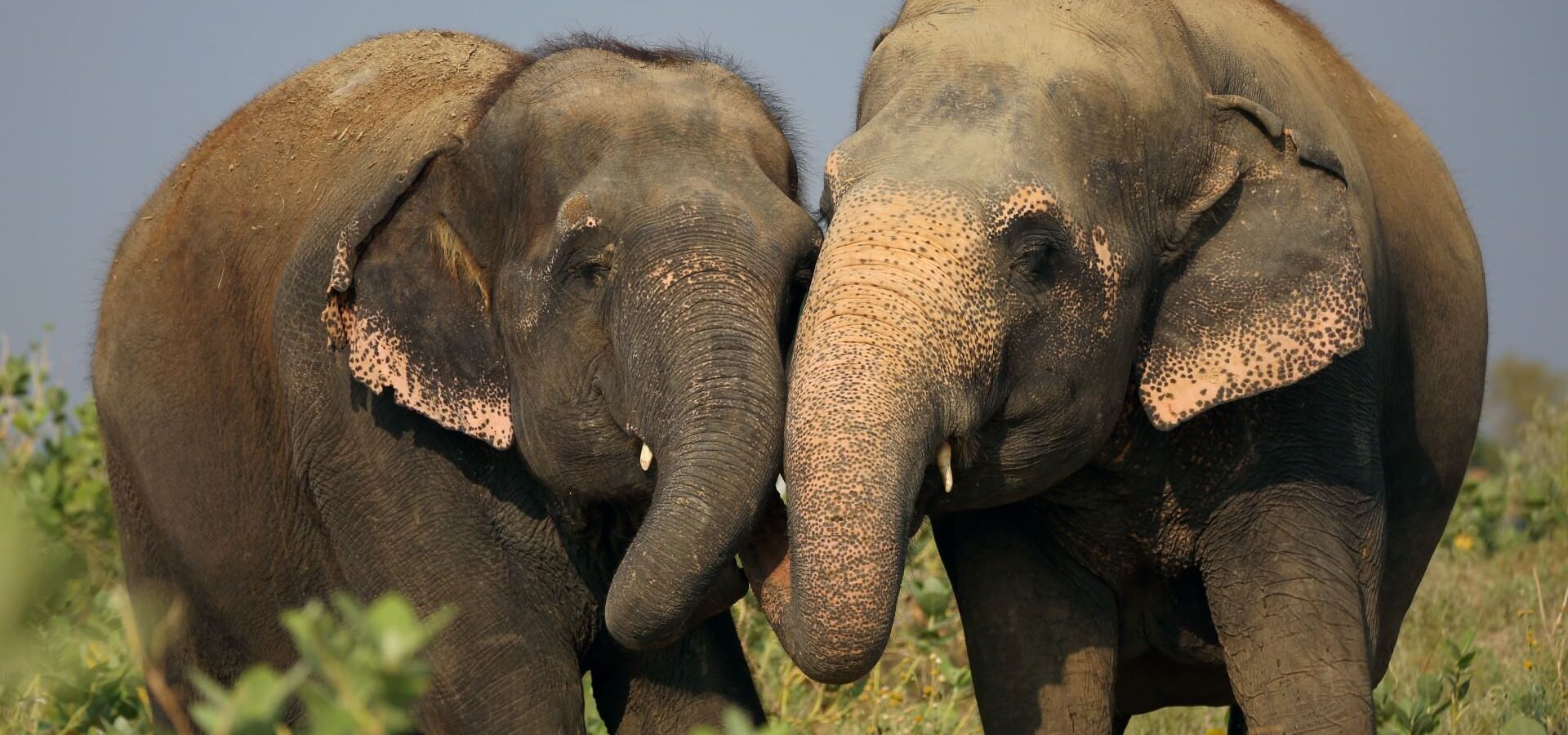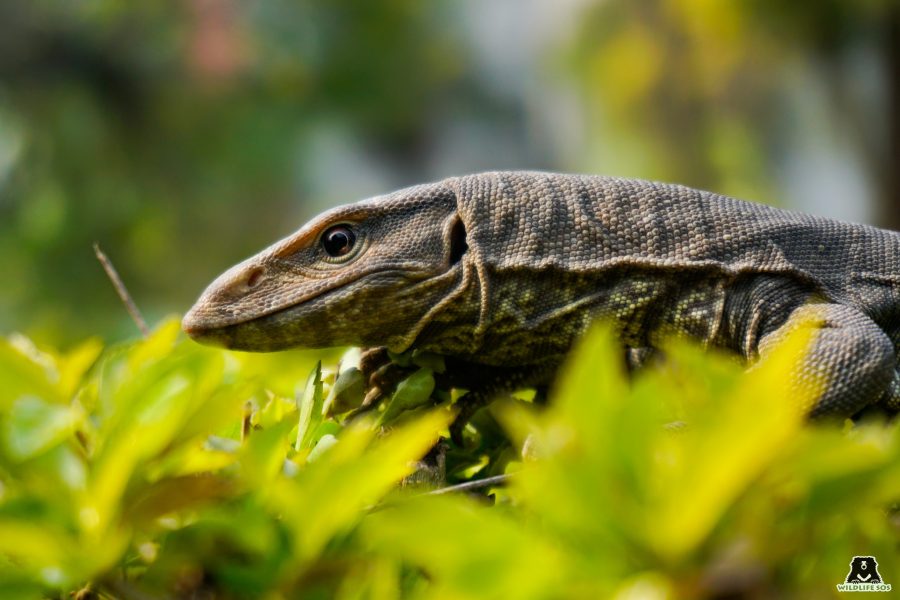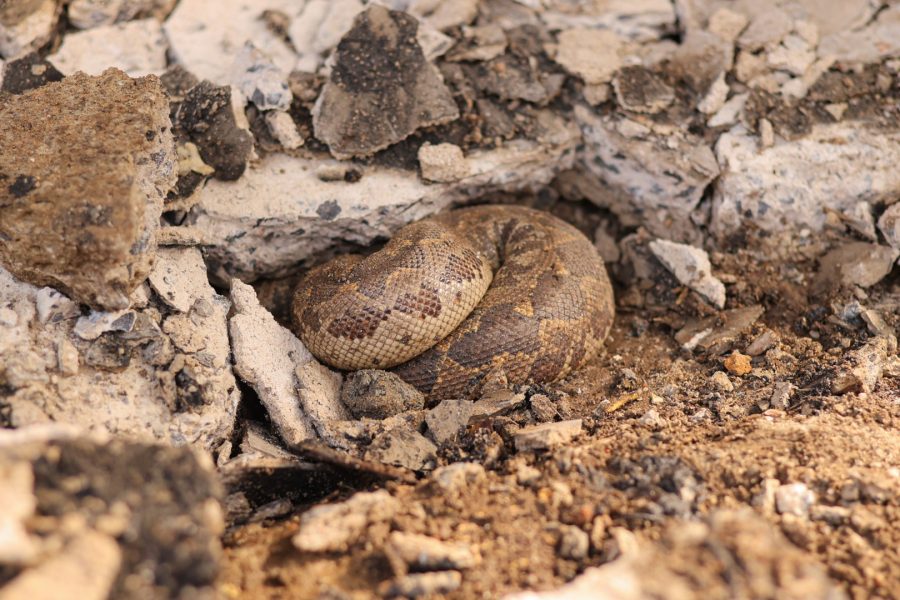Love – a chemical and an arguably ephemeral experience, has dictated the ebbs and flows of society for centuries. Infact one might argue that the euphoria of love and its constant desire has shaped human communities worldwide. Despite its importance, love eludes us, leaving even the greatest thinkers puzzled about its exact nature. Yet, what we can confirm is that love, a feeling of strong affection towards someone or something, is omnipresent in the human world. When it comes to our four-legged brethren, however, scientists have been up in arms about whether love exists in the wild or not. While the answer to this rather complex question remains a mystery, we know that various wild species continue to display a deep affection towards one another – something a lot like love.
This valentines day, we turn to the jungle and spotlight five different animals and their unique ways of showing affection to another. While we never may be sure about whether these actions constitute the human definition of love – they express a deep affection far beyond our wildest dreams.
- Elephants: A Trunk Full of Love
Research reveals that these giants of the planet don’t only have sophisticated cognitive abilities such as self-recognition but also display empathy and experience a myriad of emotions such as joy, sorrow, and even love. Researchers have found Elephants have von Economo neurons, or spindle cells also present in humans. These cells are known as “air-traffic controllers for emotions” and allow for the processing of complex social formations, emotional learning, empathy, self-control decision making, and so on. These majestic pachyderms display more than two hundred intentional gestures to communicate information. These gestures carry specific meaning and demonstrate the ability for purposeful communication.
When it comes to expressing affection, elephants do not hold back. One of the primary ways in which they communicate care is through strokes and caresses of their trunk! This acts as a show of compassion or comfort. Elephant calves also put the tips of their trunks in their mother’s mouth to feel safe. When two elephants are courting on another, they can also be found engaging in friendly trunk wrestling or intertwining their trunks together!
Body language also becomes integral in these displays of affection as elephants will often rub their bodies against each other to provide comfort. Vocalizations also act as a form of affection. Through gentle rumbles, squeaks or trumpets of joy, elephants express to each other their feelings of care.
We get to experience this compassionate side of elephants firsthand at Wildlife SOS as our elephant companions can often be found receiving and expressing affection with no inhibitions! The iconic duo Zara and Arya will often rumble to one another during their walks and entwine their trunks while Emma, Maya, and Phoolkali ensure that their bodies are continuously in touch to reassure each other of their presence.
- Leopards: No Love Like A Mother
Leopards are solitary animals who, if nothing else, are an example of self-love. Yet, what we spotlight today is the revolutionary maternal love a female leopard shows towards her cub. Adult male and female leopards only come together for mating purposes and then go their separate ways. A female leopard raises her cubs alone, showering them with all the care and knowledge needed to become healthy adult leopards. A mother will hide a cub in plain sight to protect it from any dangers and will guide them through various hunting practices to teach them skills. When a leopard is old enough and leaves its mother to lead a solitary life, the maternal bond remains strong as leopards have been known to reunite with their mothers even years later.
Wildlife SOS regularly reunites lost leopard cubs with their mothers in Maharashtra. Specifically, in the sugarcane belt, farmers often find 15 days to 2 months old leopard cubs, waiting for their mothers to return from a hunt. If these leopards are not reunited with their mothers they will be unable to survive in the wild and can even be exposed to poachers.
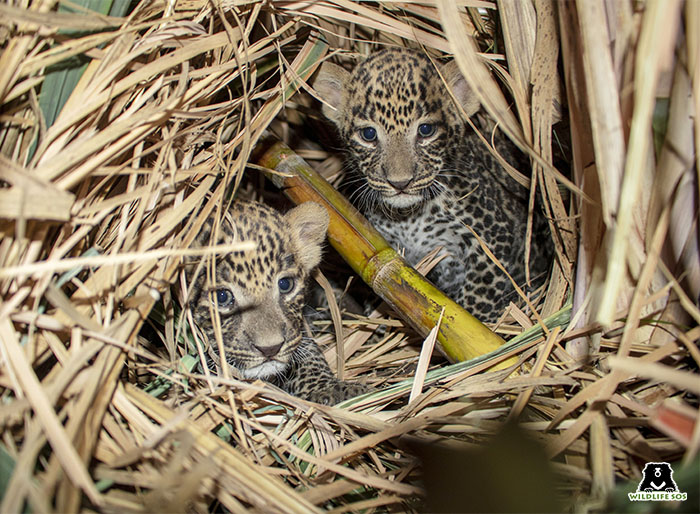
- Rhesus Macaques: Monkey Love
The most commonly encountered monkey in India, the rhesus macaque is not afraid of forming strong bonds as well as bitter rivalries. Monkeys have complex social systems, navigating the world in troops and forming tight relationships with one another. These gregarious friends do not hesitate to always stand up for each other, defending their mates from any enemy.
When a monkey becomes a mother, she too loves fearlessly. She shows love to her infant by grooming them and protecting them from any danger. In the tragic, yet common, occurrence that a mother dies, orphaned rhesus macaques also show signs of grieving. Much like their human counterparts would react, orphaned baby monkey’s go through stages of grief – isolating themselves and taking a slouched posture. This can significantly impact their development.
Wildlife SOS recently rescued three baby rhesus macaques who lost their mothers in tragic accidents. To ensure they grow up healthy and strong, they were introduced to each other. Forming an adorable and inseparable trio – these rhesus macaque’s refuse to leave each other’s sides, constantly cuddling and grooming each other.
- Barn owl – Mates for Life
Arguably, the closest to human romantic relationships, barn owls mate for life. In order to get a lifelong companion, these birds engage in elaborate rituals to court one another, such as offering food, giving out mating calls, and sometimes even engaging in courtship fights! Every spring they re-establish their pair bonds, ensuring their relationships are healthy. These owls even have home ranges overlapping with other barn owls giving them a healthy social life.
Yet, maintaining a lifelong partner is as hard a task for barn owls as it may be for humans. While usually monogamous, barn owls can often break off partnerships when the breeding process is not going well.
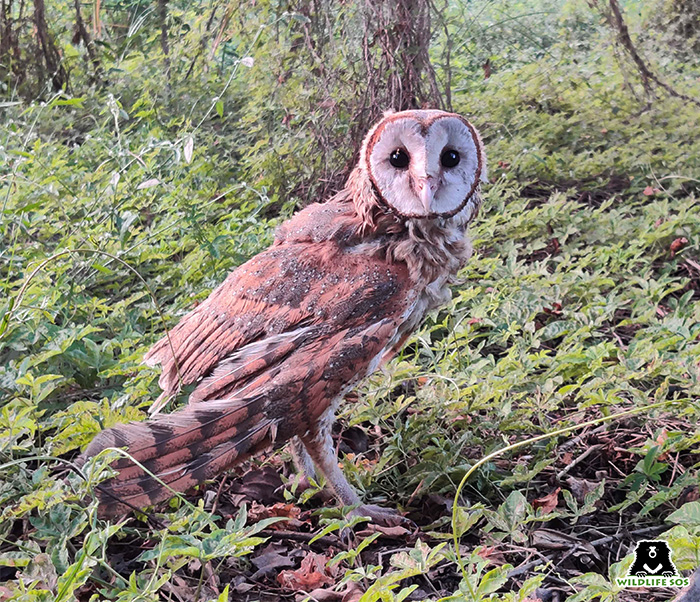
- Golden jackal – Love is Survival
Golden jackals mate for life and when its breeding season, a male jackal will guard his partner from any looming danger. To express their deep commitment to one another, a pair of golden jackals will howl together. These howls are also used to allow partners to locate one another. Golden Jackal pairs remain monogamous and female golden jackals will scare away any female intruder who she might suspect will steal her partner!
This bond is in fact integral to the survival of a golden jackal. A pair of golden jackals maintain their territory together and also raise the young together. To help them out, most jackal families have a third companion called a “helper.” While still subordinate to the power couple, helpers strengthen the family by protecting the den, aiding in hunts, providing food for a lactating mother, and allowing the parents to spend some quality time together. In case the parents die, a helper also increases the survival rate of a pup who it can help raise.
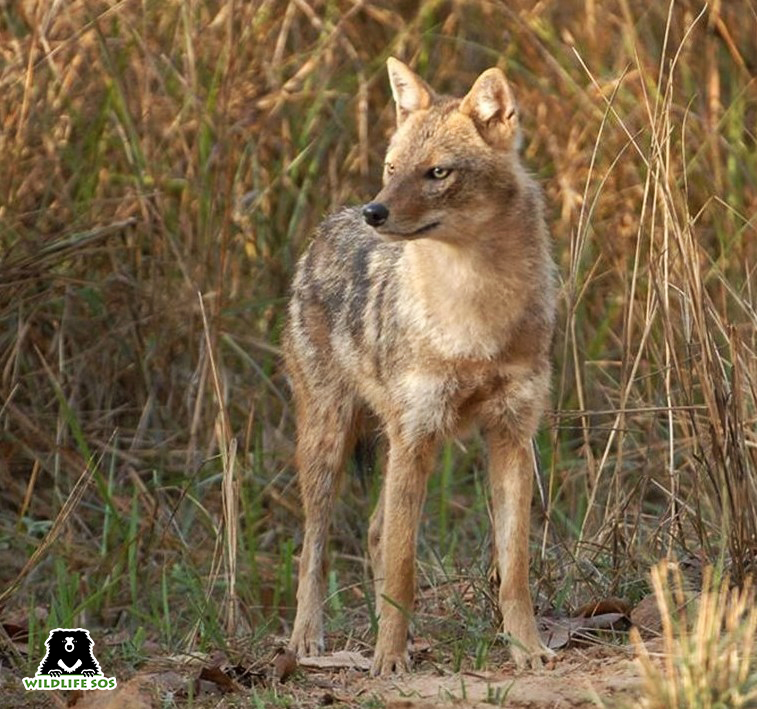
The animal kingdom is full of a myriad of examples of intimate bonds and unusual displays of affection. While most of these acts are a means to survival and can not be encompassed in the human definition of love, they remind us that a life force thrives in all of us – may it be human or animal.

